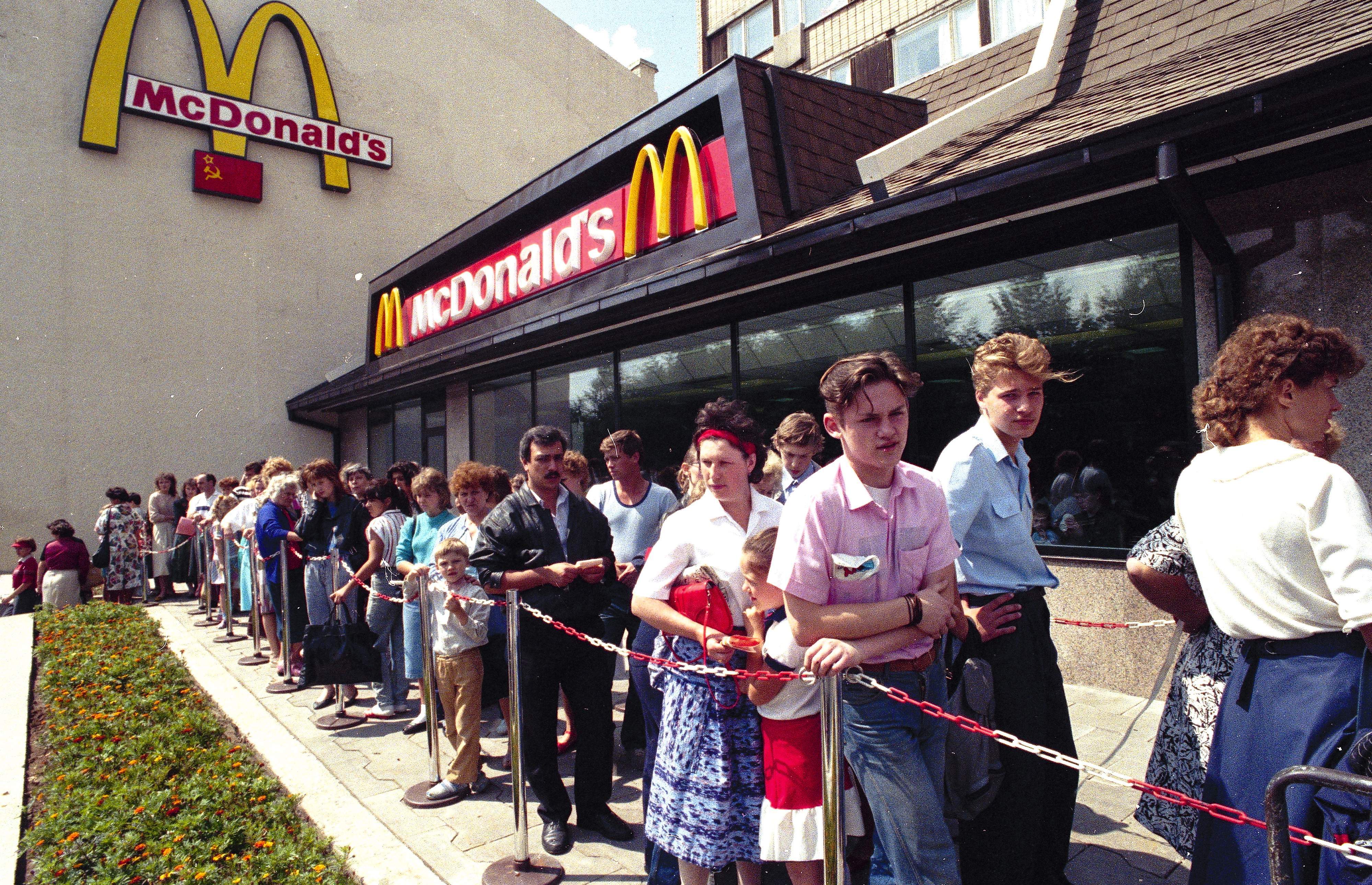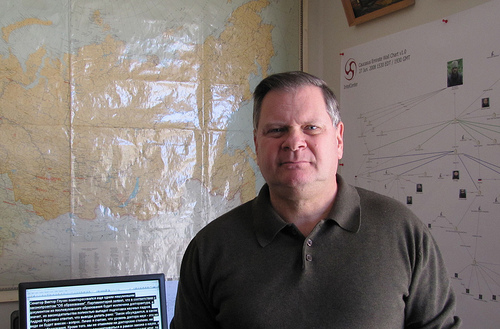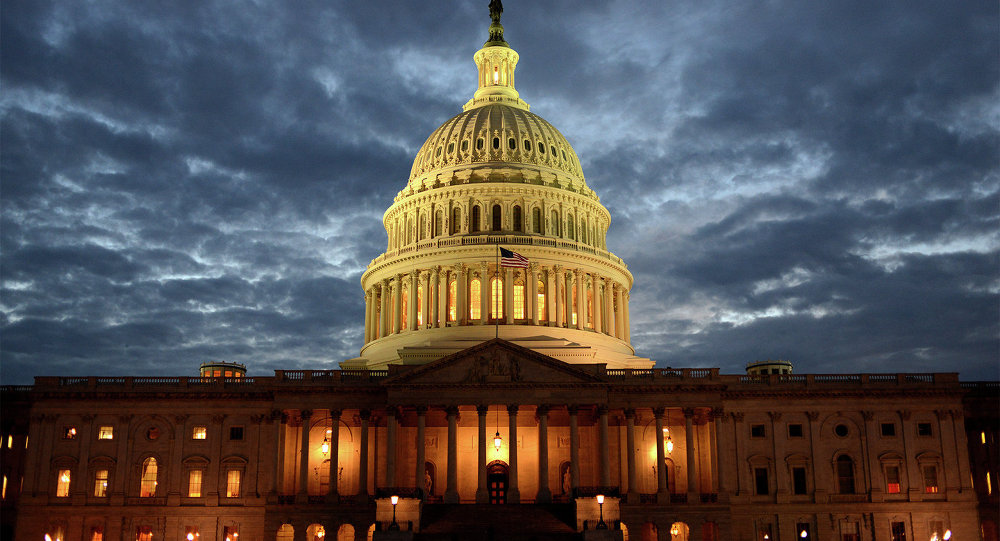Michael Birnbaum
Michael Birnbaum is The Post’s Moscow bureau chief. He previously served as the Berlin correspondent and an education reporter.
 MOSCOW — Thought the Soviet Union was anti-American? Try today’s Russia.
MOSCOW — Thought the Soviet Union was anti-American? Try today’s Russia.
After a year in which furious rhetoric has been pumped across Russian airwaves, anger toward the United States is at its worst since opinion polls began tracking it. From ordinary street vendors all the way up to the Kremlin, a wave of anti-U.S. bile has swept the country, surpassing any time since the Stalin era, observers say.
The indignation peaked after the assassination of Kremlin critic Boris Nemtsov, as conspiracy theories started to swirl — just a few hours after he was killed — that his death was a CIA plot to discredit Russia. (On Sunday, Russia charged two men from Chechnya, and detained three others, in connection with Nemtsov’s killing.)
There are drives to exchange Western-branded clothing for Russia’s red, blue and white. Efforts to replace Coke with Russian-made soft drinks. Fury over U.S. sanctions. And a passionate, conspiracy-laden fascination with the methods that Washington is supposedly using to foment unrest in Ukraine and Russia.
The anger is a challenge for U.S. policymakers seeking to reach out to a shrinking pool of friendly faces in Russia. And it is a marker of the limits of their ability to influence Russian decision-making after a year of sanctions. More than 80 percent of Russians now hold negative views of the United States, according to the independent Levada Center, a number that has more than doubled over the past year and that is by far the highest negative rating since the center started tracking those views in 1988.

Nemtsov’s assassination, the highest-profile political killing during Vladimir Putin’s 15 years in power, was yet another brutal strike against pro-Western forces in Russia. Nemtsov had long modeled himself on Western politicians and amassed a long list of enemies who resented him for it.
The anti-Western anger stands to grow even stronger if President Obama decides to send lethal weaponry to the Ukrainian military, as he has been considering. The aim would be to "raise the cost” of any Russian intervention by making the Ukrainian response more lethal. But even some of Putin’s toughest critics say they cannot support that proposal, since the cost is the lives of their nation’s soldiers.
"The United States is experimenting geopolitically, using people like guinea pigs,” said Sergey Mikheev, director of the Kremlin-allied Center for Current Politics, on a popular talk show on the state-run First Channel last year. His accusations, drawn out by a host who said it was important to "know the enemy,” were typical of the rhetoric that fills Russian airwaves.
"They treat us all in the same way, threatening not only world stability but the existence of every human being on the planet,” Mikheev said.
Soviet rhetoric was officially anti-Western, but it couldn’t repress ordinary Russians’ passion for the Beatles or their enthusiasm for getting news from jammed Voice of America broadcasts. Those positive feelings spilled over after the 1991 collapse of the Soviet Union.
But the list of perceived slights from the United States has long been building, particularly after the United States and NATO bombed Serbia, a Russian ally, in 1999. Then came the war in Iraq, NATO expansion and the Russia-Georgia conflict. Each time, there were smaller spikes of anti-American sentiment that receded as quickly as they emerged.
Putin cranked up the volume after protest movements in late 2011 and 2012, which he blamed on the State Department. It wasn’t until last year, when the crisis started in Ukraine, that anti-Americanism spread even among those who once eagerly hopped on planes to Miami and Los Angeles.
Fed by the powerful antagonism on Russian federal television channels, the main source of news for more than 90 percent of Russians, ordinary people started to feel more and more disillusioned. The anger seems different from the fast-receding jolts of the past, observers say, having spread faster and wider.
The years of perceived humiliations have "led to anti-Americanism at the grass-roots level, which did not exist before,” said Vladimir Pozner, a journalist who for decades was a prominent voice of the Soviet Union in the United States. More recently, he has to explain the United States inside Russia. "We don’t like the Americans, and it’s because they’re pushy, they think they’re unique and they have had no regard for anyone else.”
Anti-American measures quickly suffused the nation, ranging from the symbolic to the truly significant. Some coffee shops in Crimea stopped serving Americanos. Activists projected racially charged images of Obama eating a banana onto the side of the U.S. Embassy in Moscow. Russians cheerfully flocked to exchange Western-branded clothing for T-shirts with pictures of an Iskander missile launcher that said "Sanctions? Don’t make my Iskander laugh.”
"This anti-Western propaganda radically changed the atmosphere in the society,” said Lev Gudkov, the director of the Levada Center, the opinion polling firm. "It has become militarist.”
Many Russians tapped into a deep-rooted resentment that after modeling themselves on the West following the breakup of the Soviet Union, they had experienced only hardship and humiliation in return.
"Starting from about 1989, we completely reoriented toward the West. We looked at them as a future paradise. We expected that once we had done all that they demanded, we’d dance for them and they would finally hug and kiss us and we would merge in ecstasy,” said Evgeny Tarlo, a member of Russia’s upper house of parliament, on a Russian talk show last year. Instead, he said, the West has been trying to destroy Russia.
The anti-Americanism makes it harder for American culture to make inroads through its traditional means — soft-power routes such as movies, music and education. Last year, Russian policymakers ended a decades-old high school exchange program that offered their nation’s best and brightest the chance to spend semesters at U.S. schools. Few Western artists now perform on Russian soil.
Western diplomats also say privately that they find themselves frozen out of speaking engagements and other opportunities to explain their countries’ positions to Russian audiences. And Russians who work for local outposts of Western companies say their friends and neighbors increasingly question their patriotism.
A handful of business leaders have warned that Russia risks permanently stunting its own economic development with the angry self-isolation.
"I worry that the recent crisis might drive Russia into a certain historic confrontation, hampering the country's development in all spheres,” said former finance minister and Putin ally Alexey Kudrin in an interview with TASS.
But those are lonely voices amid the torrent of anti-Western fury.
"What the government knew was that it was very easy to cultivate anti-Western sentiments, and it was easy to consolidate Russian society around this propaganda,” said Maria Lipman, an independent Moscow-based political analyst who is working on a study of anti-Western attitudes.
Even McDonald’s, long an embodiment of Russian dreams about the West, was targeted for supposed health violations in the fall. Some of its most prominent locations were forced to shut down temporarily. When they reopened, McDonald’s started an advertising campaign emphasizing its local ties and its 25-year history in Russia, playing down the Golden Arches’ global significance as a bright beacon of America.
Last week, one McDonald’s billboard in the heart of Moscow read: "Made in Russia, for Russians.”












